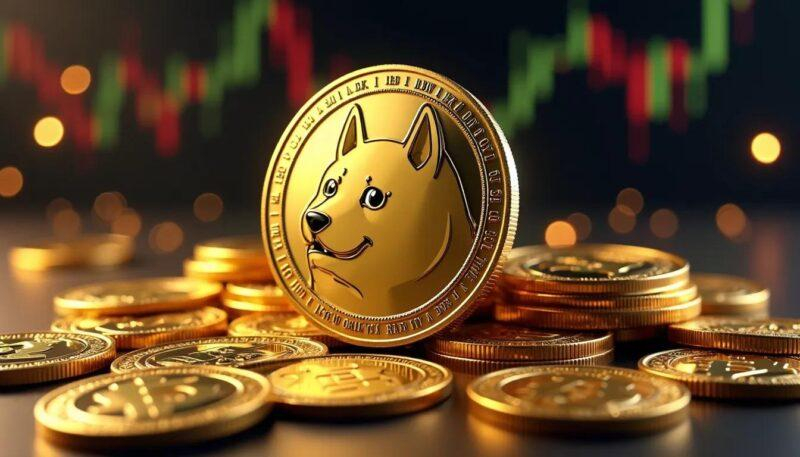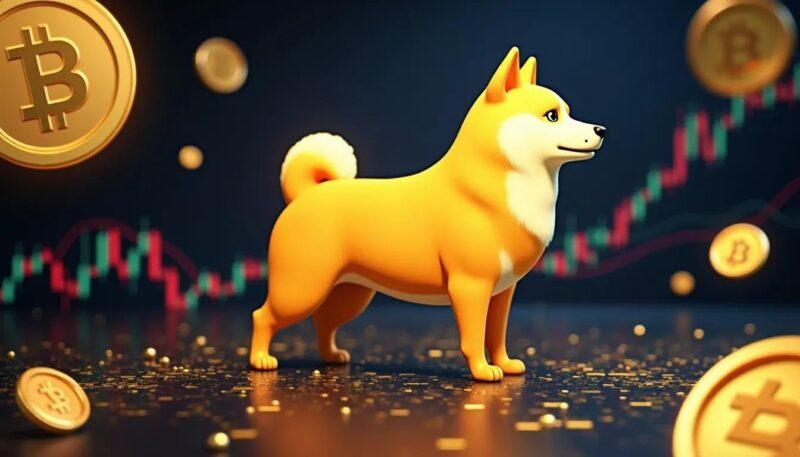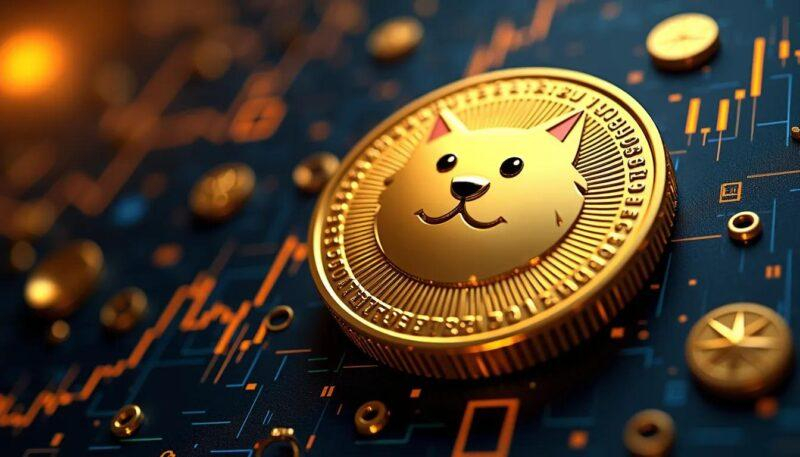In the vast and often unpredictable universe of internet culture, few phenomena have captured collective imagination quite like Dogecoin. What began as a lighthearted joke – a playful fusion of a beloved Shiba Inu meme and the burgeoning world of cryptocurrency – quickly morphed into a digital asset with a fervent community and surprising market impact. But behind this meteoric rise lies a story of creators, visionaries, and everyday enthusiasts whose contributions shaped Dogecoin from a mere meme to a cultural and financial force. This article peels back the layers to explore the origins, inspirations, and key figures who sparked the unexpected journey of Dogecoin’s ascent.
The Visionaries Behind Dogecoin’s Origins
Dogecoin was born out of a playful spirit and a hint of skepticism toward the burgeoning cryptocurrency world. At the heart of this endeavor were two tech enthusiasts who combined their expertise and humor to create something truly unique. Billy Markus, a software engineer from Portland, envisioned a digital currency that was accessible and fun-an antidote to the serious nature of Bitcoin. Meanwhile, Jackson Palmer, working in marketing at Adobe in Sydney, sprinkled his creative wit into the mix, championing the iconic Shiba Inu dog meme that would become Dogecoin’s signature emblem.
What sets these pioneers apart isn’t just their technical skills but their approach to community and culture. Unlike many digital currencies that emphasized exclusivity and investment potential, they embraced a more casual, welcoming ethos. They supported charitable causes, funded grassroots initiatives, and cultivated a global fanbase through humor and social media engagement. Their balanced blend of innovation and levity turned Dogecoin into more than a currency-it became a cultural phenomenon.
- Billy Markus – The pragmatic coder who wanted to demystify cryptocurrency;
- Jackson Palmer – The imaginative marketer who gave Dogecoin its unforgettable personality;
- Community – The vibrant collective that embraced the creators’ vision and propelled it forward.
| Contributor | Role | Key Contribution |
|---|---|---|
| Billy Markus | Software Engineer | Built the original Dogecoin protocol |
| Jackson Palmer | Marketing Strategist | Introduced the viral Shiba Inu meme |
| Dogecoin Community | Global Supporters | Fostered adoption and charitable drives |
Crafting a Community: How Early Fans Fueled Growth
Long before Dogecoin became a household name, a passionate circle of early adopters gathered around what initially seemed like an internet joke. These pioneering supporters weren’t just users; they were the heartbeat of the community, turning a simple meme coin into a movement. Their enthusiasm manifested in everything from active online discussions to creative promotions and grassroots fundraising campaigns, setting the tone for Dogecoin’s inclusive and fun-loving culture.
What truly set these early fans apart was their commitment to making Dogecoin more than just a digital currency:
- Organizing charity drives that raised thousands of dollars in DOGE for causes like clean water and humanitarian aid.
- Creating engaging memes, merchandise, and content that made the coin approachable to newcomers.
- Building a welcoming environment on platforms like Reddit and Twitter, where even the curious could join and contribute.
| Contribution Type | Impact |
|---|---|
| Community Fundraisers | Raised $30K+ for charitable causes |
| Social Media Engagement | Built a network of 1M+ active followers |
| Creative Content | Drove viral spread beyond crypto circles |
The Role of Social Media in Dogecoin’s Viral Surge
In the digital age, social media isn’t just a platform-it’s the engine driving viral phenomena. Dogecoin’s meteoric rise owes much of its momentum to a vibrant community deeply embedded in platforms like Twitter, Reddit, and Discord. Memes, catchy hashtags, and timely posts galvanized a unique blend of traders, enthusiasts, and casual internet wanderers, transforming Dogecoin from a joke cryptocurrency into a cultural juggernaut almost overnight.
Crucial to this ascent was the strategic use of social media’s fast-paced yet decentralized nature. Here’s what made the Dogecoin community’s approach stand out:
- Relatability: The lighthearted tone and meme-driven content resonated with a broad, internet-savvy audience.
- Engagement: Regular challenges, giveaways, and viral posts kept users active and invested.
- Influencer Amplification: Celebrities and social media personalities jumping on the Dogecoin bandwagon provided massive visibility.
| Platform | Role in Dogecoin’s Growth | Notable Examples |
|---|---|---|
| Real-time updates and viral hashtags | #ToTheMoon, Elon Musk tweets | |
| Community building and grassroots campaigns | /r/dogecoin trends, fundraising drives | |
| Discord | Direct interaction, event coordination | Live chats, AMAs with creators |
Key Innovations and Technical Foundations Explained
At the heart of Dogecoin’s whimsical facade lies a surprisingly robust infrastructure, grounded first and foremost in its roots as a fork of Litecoin. By leveraging Litecoin’s Proof-of-Work consensus mechanism, Dogecoin inherited a fast block time of 1 minute, significantly quicker than Bitcoin’s 10 minutes. This speed facilitated an immediacy and accessibility that attracted a lively community eager for small, everyday transactions. However, technical simplicity did not mean lack of innovation; the creators focused on accessibility and ease of use, which helped democratize cryptocurrency well before the term became mainstream.
Another key element was Dogecoin’s inflationary supply model, which deviated from Bitcoin’s capped 21 million coins policy. Instead of scarcity, Dogecoin introduced a steady, predictable emission rate, offering over 5 billion new coins annually. This approach was intended to maintain liquidity and encourage spending rather than hoarding, embedding a unique economic philosophy into its protocol. Such an idea positioned Dogecoin not just as a store of value but a currency in continuous circulation, promoting community-driven growth and playful engagement.
| Technical Aspect | Dogecoin Feature | Impact |
|---|---|---|
| Consensus Algorithm | Proof of Work (Scrypt) | Fast block times; secure network |
| Block Time | 1 minute | Quick transactions, active community |
| Supply Model | Inflationary, uncapped | Encourages spending, liquidity |
| Wallets & Support | Multi-platform, user-friendly | Broad accessibility, mass adoption |
Beyond its blockchain fundamentals, Dogecoin’s creators capitalized on emerging internet culture and an open-source ethos. They fostered an ecosystem where developers, meme enthusiasts, and philanthropists converged, using simple scripting and straightforward code contributions to expand Dogecoin’s utility. The playful yet practical blend of technology and community spirit laid down a technical foundation for viral growth-a decentralized culture encoded as much into the codebase as into social media channels.
- Open-source collaboration: Encouraged continuous improvements and playful experimentation.
- Community tipping: Popularized micro-donations that promoted engagement and visibility.
- Simple scripting: Allowed easy wallet integrations and exchange partnerships.
Strategies for Sustaining Momentum in Meme-Based Cryptocurrencies
Maintaining enthusiasm and value in meme-based cryptocurrencies demands more than viral hype; it requires a blend of innovation, community engagement, and clear utility. Projects need to cultivate a loyal user base that actively participates not just in trading, but in shaping the coin’s culture. Regular updates, meme contests, and incentivized social interactions create a feedback loop that transforms a fleeting trend into a sustainable movement.
Transparency and authenticity are essential to retain trust in a market often viewed as volatile and speculative. Developers who openly communicate roadmaps, partnerships, and technical upgrades provide the community with reassurance and direction. Within this framework, collaborative governance models such as decentralized autonomous organizations (DAOs) empower holders, giving individuals a genuine stake in the project’s evolution.
Integrating real-world applications boosts longevity by anchoring meme coins to tangible use cases. Whether it’s through charitable donations, exclusive merchandise, or ecosystem interoperability, creating avenues where the tokens can be spent or utilized enhances their perceived value. Below is a simple breakdown showcasing key strategies employed by top meme cryptocurrencies to stay relevant:
| Strategy | Key Element | Example |
|---|---|---|
| Community Engagement | Contests, Forums, Social Media | Dogecoin’s active Reddit and Twitter presence |
| Transparency | Clear Roadmaps, Open Source | Regular developer updates and AMA sessions |
| Real-World Utility | Merchandise, Donations, Payments | Dogecoin-funded charitable initiatives |
Q&A
Q&A: Behind the Meme – The Creators Who Sparked Dogecoin’s Rise
Q1: What is Dogecoin, and how did it originate?
A1: Dogecoin is a cryptocurrency that started as a lighthearted internet joke. In December 2013, software engineers Billy Markus and Jackson Palmer created it to satirize the sudden surge of new cryptocurrencies. They based it on the popular “Doge” meme-featuring the Shiba Inu dog with whimsical, broken English captions. What began as a parody surprisingly evolved into a widely recognized digital currency.
Q2: Who were the key figures behind Dogecoin’s creation?
A2: The primary creators are Billy Markus, a programmer from Oregon, and Jackson Palmer, a marketing specialist from Australia. Markus handled the coding side, while Palmer contributed to branding and initial promotion. Both intended Dogecoin to be more fun and accessible than other cryptocurrencies, aiming to build a friendly and enthusiastic community rather than chase profit.
Q3: How did the creators’ vision influence Dogecoin’s unique culture?
A3: Markus and Palmer envisioned Dogecoin as a meme-inspired currency that embraced humor and generosity. This ethos fostered a culture of tipping and charitable giving, where users rewarded each other with small amounts of Dogecoin online. The approachable, tongue-in-cheek framework invited a broad audience, distinguishing Dogecoin from more technically complex or investment-driven cryptocurrencies.
Q4: Did the original creators anticipate Dogecoin’s eventual popularity?
A4: Neither Markus nor Palmer predicted that Dogecoin would become so influential. Initially, they saw it as a playful experiment, a digital joke with little expectation of long-term impact. Over time, however, the coin gained a passionate community, viral status, and even mainstream media attention, surpassing their modest ambitions.
Q5: How has Dogecoin evolved since its inception?
A5: From a meme-driven token, Dogecoin transitioned into a recognized cryptocurrency used for online tipping, fundraising, and even some commerce. Its development slowed after the creators stepped back, but the community’s enthusiasm remained strong. High-profile endorsements and social media buzz, particularly from figures like Elon Musk, propelled Dogecoin into new levels of popularity.
Q6: What lessons can be drawn from Dogecoin’s rise about internet culture and innovation?
A6: Dogecoin illustrates how internet memes can transcend humor to influence technology and finance. It highlights the power of community and culture in driving adoption over pure technical prowess. The creators’ playful approach reminds us that innovation sometimes comes from unexpected, creative origins rather than traditional seriousness.
Q7: Are Markus and Palmer still involved with Dogecoin today?
A7: Both have largely distanced themselves from Dogecoin’s ongoing development and community. Markus returned to software engineering outside the crypto world, while Palmer has voiced both criticisms and reflections about Dogecoin’s trajectory. Despite stepping back, their legacy remains foundational to the coin’s identity and spirit.
This glimpse behind the meme reveals how two young creators turned internet culture into a lasting digital phenomenon-one Shiba Inu at a time.
Wrapping Up
As Dogecoin continues to ride the waves of internet culture and financial curiosity, the story behind its ascent serves as a reminder that sometimes, the simplest ideas-fueled by community spirit and a dash of humor-can evolve into phenomena larger than anyone could have predicted. Behind every viral meme lies a tapestry of creators, believers, and unexpected believers, all contributing threads to a narrative that challenges traditional notions of value and innovation. Whether you see Dogecoin as a joke, a movement, or something in between, its origins offer a fascinating glimpse into how creativity and connectivity shape the digital age.






